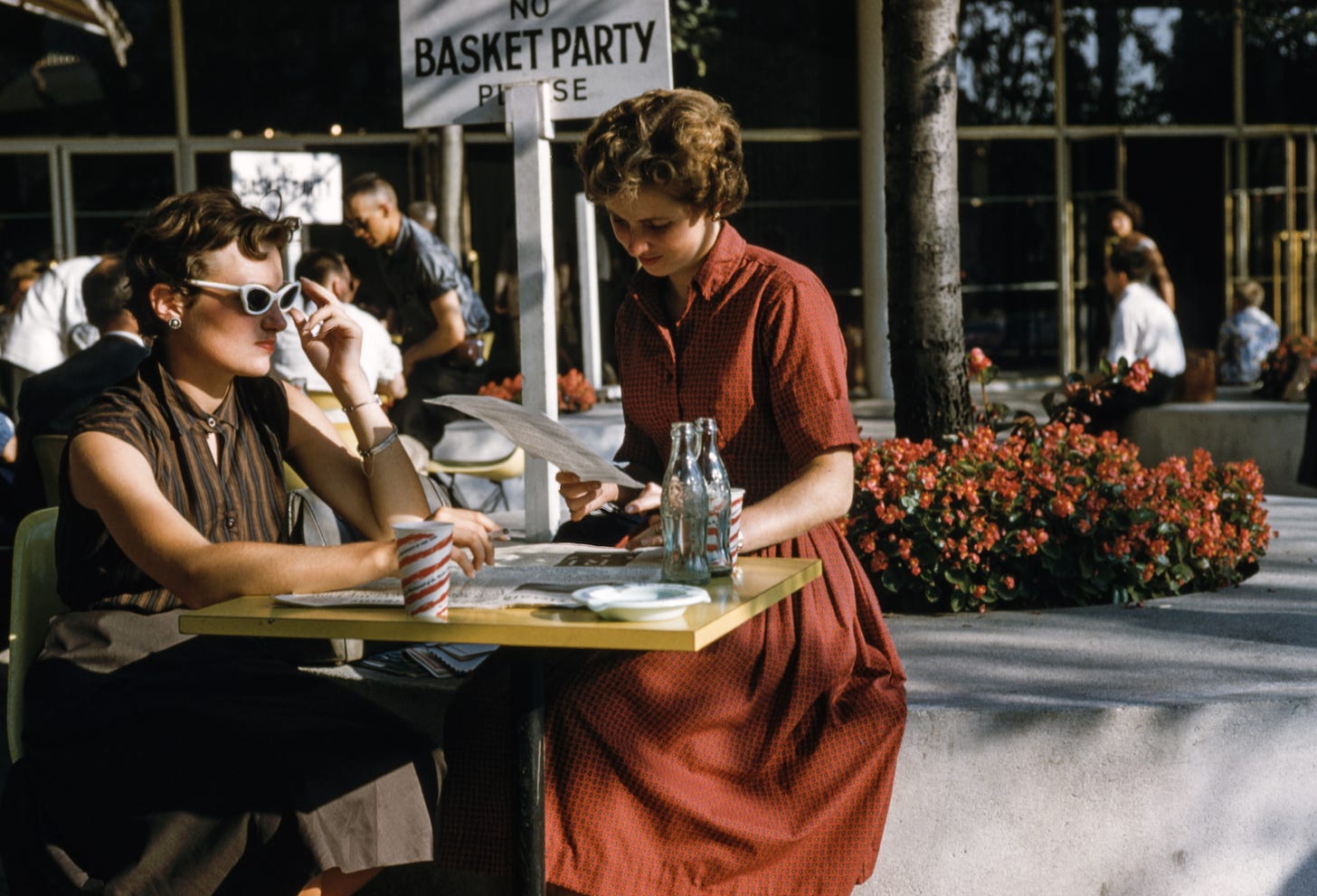Welcome! Please join our community of 10,000+ moms as we discuss the future of motherhood and work, and how women and families can lead better lives at home and in the workplace. If you are new here:
Does it belong in an earlier era?
From the moment my son was born six and a half years ago, I proudly called myself a working mom.
Even when the pandemic pushed me to my mental breaking point—and to leave a job I loved—I never stopped thinking of myself as a working mom.
Admittedly, I’m pretty biased in favor of the term. I was the deputy editor at Working Mother magazine and the editor in chief of its website. For five years, I wrote and edited stories specifically for women who earned an income while caring for their kids—otherwise known as working mothers.
But “working mother” has fallen out of favor in recent years, and I must admit its detractors make some compelling points. In a piece for Romper, journalists Katherine Goldstein and Jo Piazza argue that it’s time to put the phrase to pasture:
Mothering, like all parenting, is work. If anyone was unaware of this fact before the pandemic, 18 months of watching moms nearly drown under the weight of the effort has driven the point home.
This cultural reckoning is just one of the reasons that now is the perfect moment to drop the term “working mother” from our lexicon. It’s not only a redundancy, but the stamp of “working” or “staying at home” are binaries that don’t fit today’s economic and cultural moment.
It’s certainly true that the lines between working and mothering have been blurred like never before, especially as more and more moms opt for remote jobs.
The divide was never quite clear to begin with. Just ask any mom who has fielded multiple kid-related calls while at work. We don’t stop mothering when we start working, and we don’t stop working when we’re mothering, because caretaking is work too. Hard, unpaid and under-appreciated work!
That’s why Goldstein and Piazza suggest we stop using iterations of “stay-at-home mom,” too.
Michael Perry, the founder of household management app Maple, would probably agree. “I absolutely hate the term work-from-home mom. I think it’s degrading. I work from home, and I’ve never heard anybody call me a work from home executive,” he told Mother Honestly Founder Blessing Adesiyan during an IG Live chat on Monday. “My wife works exponentially harder than me, and she’s a full-time caregiver to our children. I find it incredibly insulting when people look at her as just a work-from-home mom. I really hope that we rebrand what it is to be a full-time caregiver.”
When we asked the MH community, many moms agreed…
Yet I’m not fully convinced it’s time to retire “working mom” and replace it with something more inclusive, such as “employed caregiver.” Here’s why: Moms are still penalized in the workplace. Dads, as a group, aren’t. Consider the following: Fatherhood is associated with a wage premium—meaning men with kids earn a higher salary—while motherhood is associated with a wage penalty. Women get, on average, a 4 percent pay cut for every child they have.
A lot of that is because we haven’t come close to reaching gender parity at home. Even breadwinning moms handle more chores, childcare and household management tasks than their male partners. The pandemic made that perfectly clear, too. Moms quit their jobs in droves to take care of kids. Dads didn’t. And while men have recouped all the jobs they lost during the past two years, there are still 1.1 million fewer women in the labor force than in February 2020.
So, yes, employers should offer family-friendly policies that benefit all parents, but they shouldn’t ignore that it’s moms who carried the load these past two years; that it’s moms who are deeply exhausted and burned out; and that it’s moms who were offered fewer raises and promotions during the pandemic. Any genuine effort to attract and retain workers will have to specifically target moms. Not parents. Not women. Moms.
I’m amenable to calling us employed moms, or labor force moms, or paycheck moms, but only if it doesn’t impact advocacy on our behalf. We need affordable childcare. We need paid family leave. We need flexible work. We need stronger workplace discrimination protections. We need more raises and promotions. We need and deserve so much more.
Call us what you will, but don’t ignore us.
UPCOMING EVENTS:
LOVE TO SEE IT
Members of the Navy and Marines now get an extra week of paid leave to bond with their new baby or adopted child. The maximum amount of leave for "secondary caregivers" increased from 14 days to 21. Even better news? Beginning in December, all military personnel will receive 12 weeks of paid parental leave, as required by the 2021 National Defense Authorization Act.
Twitter CEO Parag Agrawal will take “a few weeks” of paid parental leave, an unusual and laudable move for the CEO of a major tech company in Silicon Valley. (Still, we wish he would take the full 20 weeks of paid parental leave the company offers.)
HATE TO SEE IT
Pfizer pulled their FDA request for the COVID-19 vaccine for children under 5, putting yet more stress on moms of young kids.
#RELATABLE

This newsletter was written by Audrey Goodson Kingo, Editor in Chief at Mother Honestly. Please send feedback, ideas and suggestions (or just say hello!) to me at audrey@motherhonestly.com. And if you found this newsletter helpful, please share with a friend!









